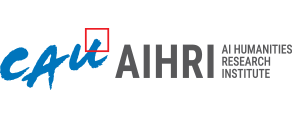Serial Number : http://www.riss.kr/link?id=A105523998
Title : A Study on Necessity of Transition of the Standard Language Policy between South and North Korea - Focusing on the Influence of Standard Language on Communication in the Posthumanism Era -
Autohr : 이찬규 (Chan-Kye Lee)
Journal : 東洋學 (The Oriental Studies , Dong Yang Hak)
Vol. : 72 No.- [2018]
pages : 133-158
Published by : 단국대학교 동양학연구원 (Institute of Oriental Studies Dankook University)
Date : 2018.07
Register Information : KCI
etc. :
-----------------------------------------------------------------------
<ABstract>
This study suggests that the factors that accelerate language heterogeneity in North and South Korea are the codified standard language policy of North Korea and South Koreas, and it is necessary to abolish the codified standard language because it can make communication difficult.
Historically, the notion of standard language began in England in the 15th century, and France was influenced in England, which again influenced Germany. During the period from the 15th to the 19th century, the standard language policy, which was intended to strengthen the kingship in Europe and to increase the influence of the central government, influenced imperial Japan through Germany and this led to Korea in the Japanese colonial period. Today, It became a nation that enacted a strong standard language policy.
Comparing the languages of the two Koreas, there is no significant difference in terms of spelling. On the other hand, there are many differences in terms of lexicon. It seems to be the result that North Korea has strongly promoted the use of cultivated standard language, and South Korea has also adopted strong standard language policy. The fact that the two Koreas have the standard language of each codified standard language can be a source of conflict in the future development of inter-Korean relations.
Communication is the most basic function of language. Historically, the standardization of language has helped communication until 19th century. However, since the concept of ‘ensuring language diversity, activating creative function of language and securing the right of language equality’ has been strengthened in modern times, as a result, standard language is rather a factor preventing communication abundance. For that reason I suggest abolishing the codified standard language.
If we abolish the codified standard language, we will use the most, the standard in broadcasting and media, and the way to educate students based on the languages included in the dictionary, and many other benefits, is a reasonable way. In this paper, instead of the concept of ‘alternative’ as the standard language, this paper proposes the concept of ‘Unified Common Korean’, which is a common language used by all Koreans.
Key words : standard language, culture language of North Korea, Standard language Regulations, Standard Language Policy, Unified Common Language, Language heterogeneity, Language Unification
| 
